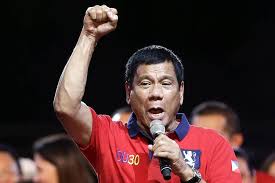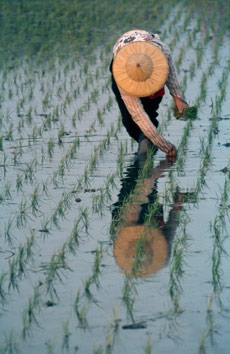A four-state research trip begins at Fiumincino in Rome, where on a Sunday afternoon the worst chaos I have seen in the Italian capital’s airport reigns. Hundreds of people are crammed into the main security area, a single incoherent mass that takes an hour to pass through the security check. Amid the crush, a British genius yells ‘You need to open more channels’ as if he is the only person in the room that this has occurred to. One guesses the airport cannot find enough people to work on a Sunday afternoon, despite an economy shrinking five percent this year. A couple of Italians lose control completely, screaming like lunatics at the security staff; one of them continues in the same vein at a policeman who appears on the scene.
My Air China flight is delayed a couple of hours because it has been snowing in Beijing, so I can afford to be more patient than some; eventually I get to the gate. Seated in economy I dread a sleepless night travelling east, followed by the jetlag from hell. But soon after take-off I doze off and sleep better and longer than I often do when given a business class seat-bed for a speaking engagement.
The reason for my plane’s delay is snow in Beijing – where I am going first – which closed the airport for half a day. The BBC reports this is due to ‘cloud seeding’, a technique developed in the United States but popularised in China. It involves using airplanes or small rockets to seed clouds with silver idodide that induces rain. You cannot make extra rain like this, as I understand it, but you can make rain fall in places other than where it might fall naturally. The Beijing area is perennially short of water. According to media reports, Chinese meteorologists failed to calculate that wind and temperature conditions on this occasion would cause precipitation in the form of snow. The same thing is said to have occurred in February.
It is a brief, one-night stop in Beijing. On both occasions that I pass through the airport, for landing and for taking off to Tokyo, I have a good look out of the window at the Beijing area. Stories continue to be published in the press that pollution has improved. But all I see looking out of plane windows is a cigarette-smoke yellow haze that sits like an inverted shallow bowl over the city area. A pollution report published by the US embassy in Beijing suggests that the pollution story depends on which pollutants you choose to measure; it focuses on fine particles and tells a less sanguine tale than the official Chinese one.
And so to Japan, where I am ever-more struck by just how little English people speak, even in big cities. I am headed out to the countryside to look at the history of land reform, in what promises to be a supercharged, bucolic version of Lost in Translation, minus Scarlet Johansson.
On the upside, I can read about a quarter of the characters I see in Japan, because they come from Chinese. On the downside, I manage to leave my ‘Survival Japanese’ phrasebook at the friend’s house in Tokyo where I stay the first night.
The car I hire in suburban Tokyo has satellite navigation, but only in Japanese. The one real break I get is that before driving out of Tokyo I manage to enter a marker in the navigation system at the place I am staying. If not, I doubt I would ever have returned.
As much as any place I have been, Tokyo has to be seen to be believed. The vast majority of this vast city is low-rise, clap-board style houses reached by narrow (perhaps six metre wide) lanes which, in my experience, are never cul-de-sacs. These lanes, which are all demarcated with white lines that set aside a little of the precious space on either side for pedestrians and cyclists, go on and on and on.
To prove the point, I leave Tokyo by randomly weaving – following a general north-west trajectory shown on the navigation system – and drive for more than two hours through the lanes until I have had enough and switch to a bigger road. Every so often I come across a market, a school, a group of small one-room restaurants and bars, or a railway line. The more central parts of Tokyo are charming. But the sprawl that connects Tokyo with a series of what claim to be separate towns and cities (you only know it from the names) is ugly and unpleasant. I had not realised before how much Japan has succumbed to the American acceptance of acres of malls, discount stores, fast food restaurants and car showrooms along every significant highway in the country. This has brutalised large swathes of a naturally very beautiful place.
Still, driving into the central mountain range of Honshu island, I eventually reach hills too steep for development. This is where the forest land that covers so much of Japan begins. And it is very attractive forest, comprised of many different tree species, part evergreen and part deciduous. At this time of year the colours are phenomenal. I stay a night in Chichibu, epicentre of a large-scale nineteenth century peasant revolt, and then head across to Niigata on the west coast, an area famed for Japan’s best rice (and hence sake). It is here that a small number of pre-Second World War landlord houses I want to look at are preserved.
Niigata City itself is a reasonably attractive place, easy to navigate, and with excellent food. It comes as a shock that three hours on the expressway through the mountains to get there costs Euro50 in tolls.
The lack of English thing isn’t getting any better. There are shops I go into where the staff appears to have not a single word of English among it. I wander out again, empty-handed. I stay in quite a reasonable hotel, but the English there is up to very little. Eventually I find a woman in the back office who speaks enough English to help me programme the navigation system to find the farms I want to see. I don’t think I have ever felt so cut off from people around me in a place I have visited. They are very friendly and polite. We just cannot communicate.
After a couple of days it is time to head back to Tokyo. Getting to the capital is easy enough. Getting across the capital to my friend’s house is where the navigation system marker turns out to be critical. On a Sunday evening I am led by the machine through a maze of flyovers, tunnels, and complex intersections that would have seen me make a dozen mistakes or more trying to follow a map. Even with the satellite system, I get back after five or six hours in the car remembering why I have come to loathe driving: it is all wasted time; you can’t do anything while you are controlling a car.
Next day I fly to Taipei, stay in a grotty airport hotel, and go back to the airport for an early connection to Manila. There I switch to a local flight to Bacolod, the capital Negros Occidental, a place that has been dubbed ‘Sugarlandia’. In the 19th century it was turned into a sugar estate monoculture by European and American families and has remained pretty much that.
As the plane descends, you can already see multiple fires where farmers are burning off the residue in fields where sugar cane has been cut. There is sugar everywhere, even around the airport. November is part of the cutting season and every road seems to have one or more big trucks piled high with brown cane heading towards the nearest Central, as the sugar refineries are known.
I spend three days trying to understand why the land reform programme introduced after the 1986 flight of Ferdinand Marcos has failed to change the lives of most farmers here. Many landlords have found ways to hang on to their estates – the biggest local player is Eduardo ‘Danding’ Cojuangco, perhaps Marcos’s number one crony, who has never been brought to book – while farmers who have obtained plots have often ended up selling them because of debts to usurers. They then become estate workers again earning, at current exchange rates, about US$2 a day. With the help of some well-informed contacts, I manage to visit land reform cooperatives that are being somewhat more successful. We travel into deep countryside that is as stunningly beautiful as it is poor.
Then it is time for a stopover in Manila so that I can obtain a difficult-to-come-by book, a recent biography of Danding Cojuangco. Reading this on the plane home, I am pleased to note a striking parallel between the late Filipino fantasist duce Ferdinand Marcos and current Italian fantasist duce Silvio Berlusconi.
It seems that not only was the latter embarrassed by secret recordings of his pillow talk. Back in 1972, just before Ferdy plunged the Philippines into more than a decade of martial law, recordings of his bedroom exchanges with a B-movie actress called Dovie Beams (who had been making a movie in the Philippines) began to circulate in Manila. The tape, recorded by the actress before she fled the country, featured Ferdy moaning, singing his favourite folk songs, and begging for oral sex. The University of the Philippines radio station took to playing the recordings over and over. Ferdy, as was his standard refrain, said the whole thing was a communist conspiracy and sought to have various journalists jailed. Now where else have we heard and seen that?






 Review by David Pilling
Review by David Pilling